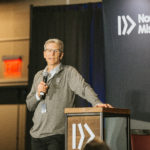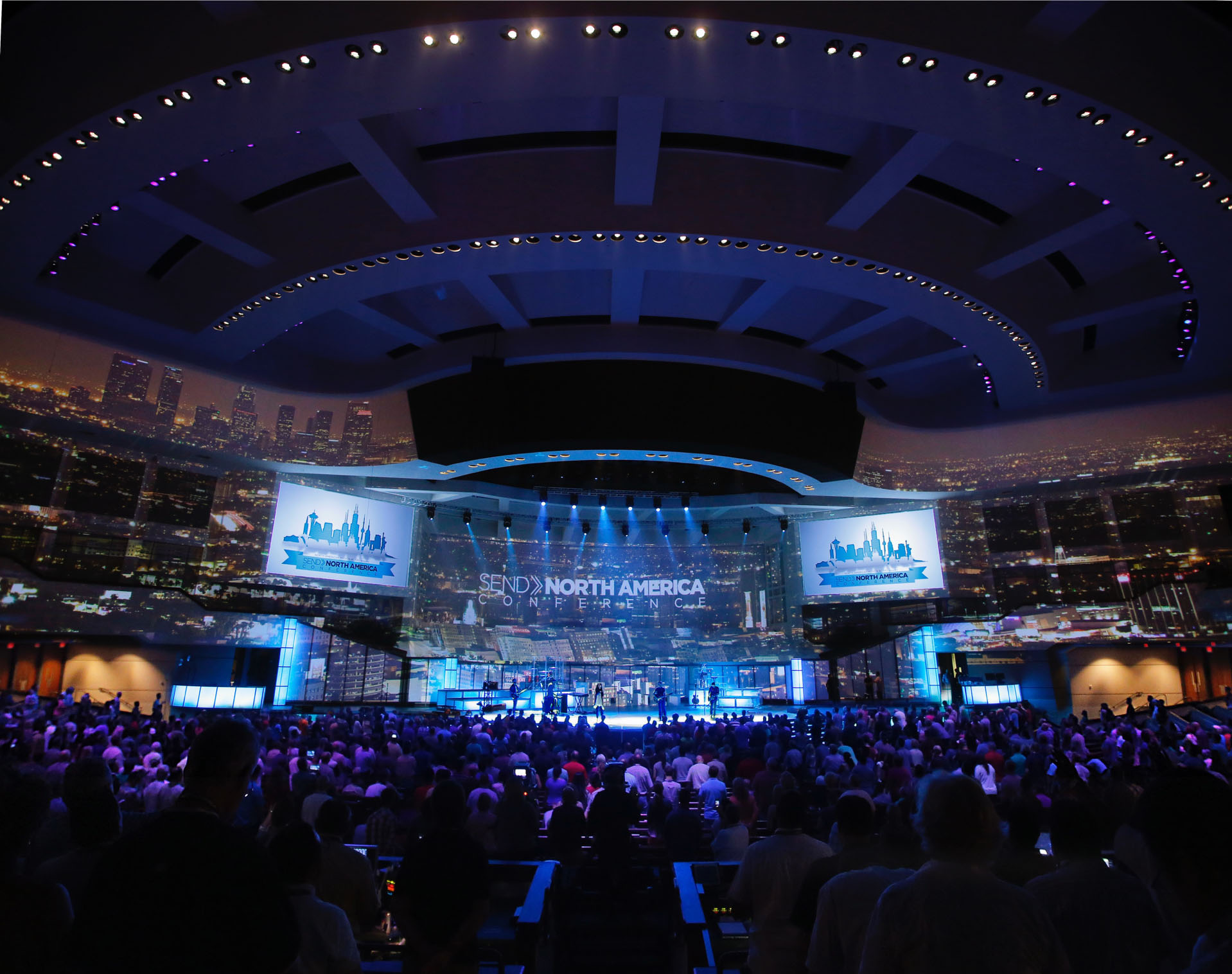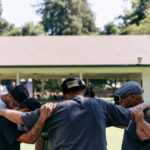
EDITOR’S NOTE: Please see related feature story on NAMB trustees visit to Montreal below this story.
MONTREAL, Quebec, Canada (BP) — North American Mission Board trustees gathered Oct. 2-4 in Montreal to hear reports of the progress new church plants are making there and to witness the reality of the deep lostness that is believed to make this Canadian city the least-reached part of North America.
 “It is a bit hostile to the Gospel,” Gerry Taillion, executive director of the Canadian National Baptist Convention, told NAMB trustees. “But slowly and surely, we will win them.”
“It is a bit hostile to the Gospel,” Gerry Taillion, executive director of the Canadian National Baptist Convention, told NAMB trustees. “But slowly and surely, we will win them.”
Taillon credited his convention’s partnership with Southern Baptists as a key element to the growth Montreal and all of Canada has recently seen in Kingdom work.
During a presentation to trustees at dinner on Oct. 2, Taillon and NAMB president Kevin Ezell shared statistics showing the progress throughout Canada since 2010 in the areas of baptisms, church attendance, number of church plants, total number of churches and partnerships with churches in the United States.
Taillon noted, “I just want to say thank you so much North American Mission Board and Southern Baptists. Those figures would not be there and that would have not happened were it not for this partnership that we prize.”
Earlier in the day, trustees saw some of that work first-hand when they boarded buses and visited several sites where NAMB church planting missionaries have launched new churches in recent years. (See additional article below this report.)
At the plenary session on Oct. 4, trustees heard reports from several committees, reviewed financial statements and approved resolutions addressing a number of issues.
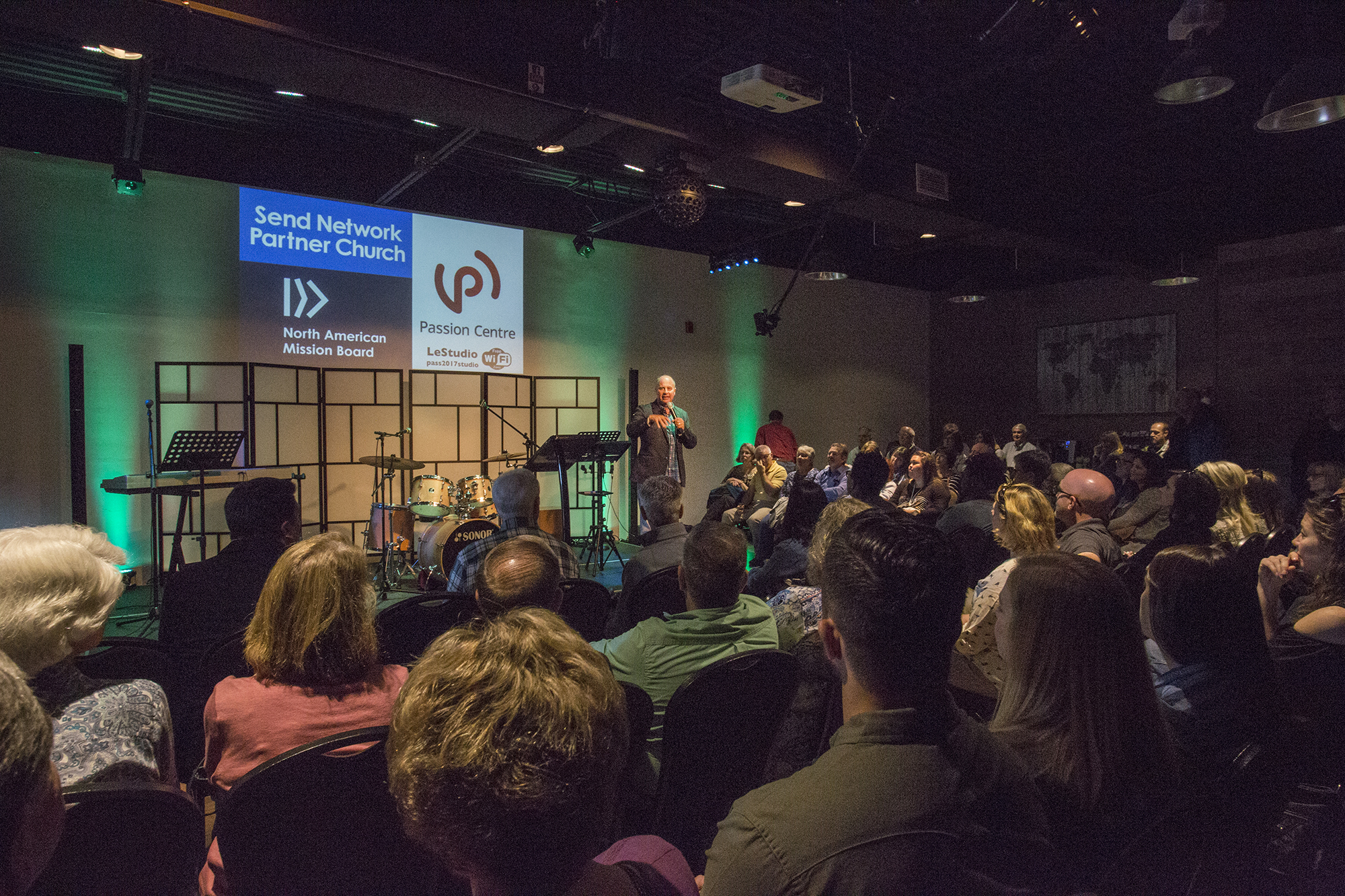 Matthew Smith, NAMB’s controller, shared a preliminary report showing that each of NAMB’s expense line items finished the fiscal year ending September 30 below budget. Cooperative Program revenue finished 2 percent higher than anticipated and the Annie Armstrong Easter Offering finished just $84,000 below last year’s offering which was the second-highest ever given.
Matthew Smith, NAMB’s controller, shared a preliminary report showing that each of NAMB’s expense line items finished the fiscal year ending September 30 below budget. Cooperative Program revenue finished 2 percent higher than anticipated and the Annie Armstrong Easter Offering finished just $84,000 below last year’s offering which was the second-highest ever given.
Also at the meeting trustees:
— Approved a series of resolutions responding to motions that had been referred from the 2017 Southern Baptist Convention Annual Meeting. See related story. The motions addressed how trustee contact information is published and state entities with which NAMB has Cooperative Agreements. In response to a motion regarding NAMB’s trustee board representation, NAMB trustees responded that they had previously established a subcommittee to study the issue and make recommendations at their June 2018 meeting.
— Approved a new committee structure for the Board of Trustees that better reflects NAMB’s current ministry emphasis. Primary committees will now be Send Network, Send Relief, Chaplains and Financial Services. Each of those primary committees may form teams as needed in order to focus on specific areas of work.
— Approved the sale of up to $50 million of NAMB’s church loan portfolio to Baptist Church Loan Corporation. Any church holding an affected loan will be informed about the transfer and can choose to keep its loan with NAMB if desired. NAMB has been in the process of selling many of its loans so it can focus primarily on financing the efforts of church plants.
Send Relief, Church Planting Pipeline & Gospel conversations
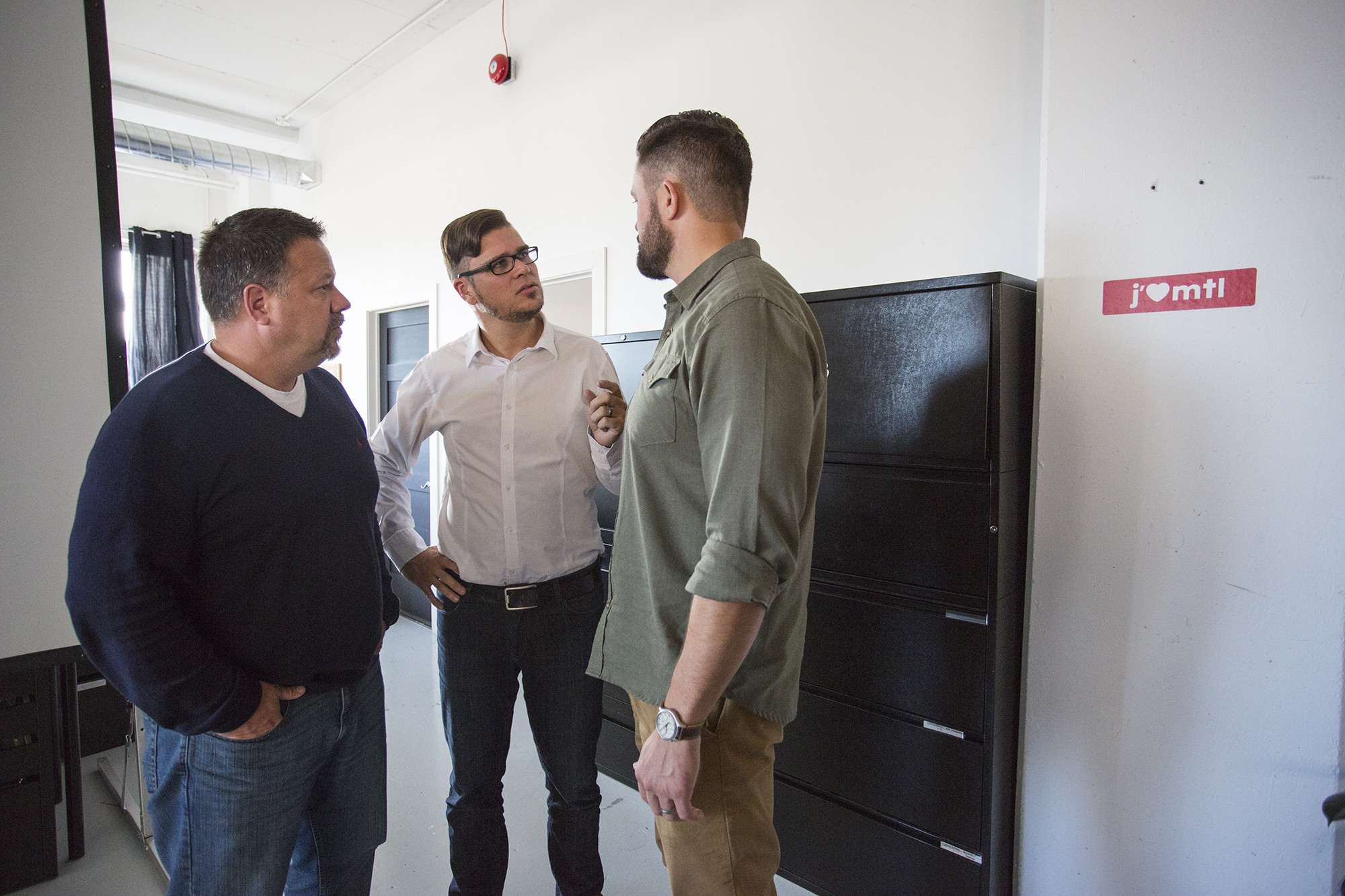 In his report to trustees, Ezell focused on plans to expand the reach and services through NAMB’s Send Relief compassion ministry. Ezell thanked state convention partners and volunteers for all they have done in response to recent hurricanes Harvey, Irma and Maria.
In his report to trustees, Ezell focused on plans to expand the reach and services through NAMB’s Send Relief compassion ministry. Ezell thanked state convention partners and volunteers for all they have done in response to recent hurricanes Harvey, Irma and Maria.
Southern Baptists are considered among the “Big Three” in disaster relief entities, along with the American Red Cross and the Salvation Army, Ezell noted.
“We are very grateful for the funding that comes through Southern Baptists,” Ezell said, but “the greatest need we have in Send Relief is more resources to help the people on the field.”
Ezell shared that more than half of donations received since the beginning of Hurricane Harvey efforts have come from non-SBC sources, indicating a potential for donations beyond the Southern Baptist base. While Send Relief’s gospel focus will remain rock-solid, “We feel like there is incredible potential for donors and volunteers outside of the SBC,” Ezell said. “We just have to think bigger.”
Turning to church planting, Ezell said the launch of NAMB’s new Church Planting Pipeline has gone well and that hundreds of churches have already signed up to participate. The pipeline process helps churches discover, develop and deploy the next generation of church planters.
“The greatest need we have in Send Network are church planters,” he said.
Ezell closed with a focus on the new Gospel Conversation Challenge NAMB is leading along with LifeWay Christian Resources, the SBC Executive Committee and state Baptist convention partners.
The gcchallenge.com web site includes the “Gospel Conversation Pledge” which pastors can sign, committing how many gospel conversations their church will have between now and June 2018. There is also a place to record and upload a “GC60” video, where people can share about their most recent gospel conversation. A prayer guide and additional resources are also available.
“The whole idea,” Ezell said, “is to get people thinking about it and talking about it consistently — having gospel conversations. When you do that I have found in my own life that I am much more accountable to doing it and taking advantage of every opportunity.”
See additional story on Montreal below.
–30—
Mike Ebert is executive director of public relations for the North American Mission Board.
**********
New vision for Montréal
By Brandon Elrod
MONTREAL, Quebec, Canada (BP) — A celebration has been underway in Montreal. The year 2017 marks the city’s 375th anniversary of its founding, and the streets have been filled with festivals and events commemorating the occasion.
 While many in the city have been celebrating the birth of what would become an island metropolis, North American Mission Board trustees visited Montreal in the midst of a different celebration.
While many in the city have been celebrating the birth of what would become an island metropolis, North American Mission Board trustees visited Montreal in the midst of a different celebration.
Over the last few years, hundreds of people have been coming to faith in Jesus Christ as a result of the faithful ministry of church planting missionaries laboring in one of the most secular cities in the world.
Montreal is one of the 32 Send Cities in NAMB’s Send Network for church planting, and the city used to be known by some as a place where church plants go to die. The city practically became a spiritual ghost town after residents walked away from the Catholic church in the 1960s and 1970s. The church had controlled virtually every aspect of life including school, work, government and healthcare.
Many of the brilliant basilicas and cathedrals now serve as mausoleums rather than hubs for ministry, or have been transformed into tourist attractions, restaurants and even a hospital.
As NAMB trustees traveled around the city, they could not help but take note of the spiritual darkness. “It opens your eyes to the reality of the need for missionaries, church planters and evangelism,” said first-year trustee Rob Crow, pastor of First Baptist Church of Diamond, Mo.
 The light that had been seemingly squeezed out, however, has started seeping in once again.
The light that had been seemingly squeezed out, however, has started seeping in once again.
“About 99 percent of the population in Montreal are lost and in great need,” said James Copeland, pastor and church planting missionary at Renaissance Church, “but we have been meeting people who are walking with the Lord and who are hungry for the Lord.”
There is a sense that the secular culture may be taking its toll after decades of implementation. The people, while cautious and careful around Christianity, seem to be developing a taste for the truths found in “the faith that was delivered to the saints once for all.”
Nearly every day, church planting missionaries report, there are small victories in the city. The ground can be so hard that it can take months of talking with someone who attends one of the gatherings before they truly understand the Gospel. Yet, David Pothier, pastor of La Chappelle, also recounts stories of nearly immediate life change.
Pothier recounted the story to trustees of an ex-Navy Seal physical trainer at a gym near their church office who, after visiting a La Chappelle service, experienced the Lord and put his faith in Christ. Now, he trains several people in his gym while blaring worship music.
La Chappelle has been one of Montreal’s greatest stories. Originally planted in 2013, it has grown and multiplied into three distinct churches with a total of about 1,650 people attending weekly at the three locations.
To date, La Chappelle has baptized 450 new believers since its launch, and the church plans to continue to multiply through Montreal and into the rest of the French-speaking world around the globe.
“Without NAMB, the rhythm, the speed and the effectiveness of the churches we plant would not be possible,” Pothier said.
While meeting with the trustees, Pothier expressed his gratitude: “You have made it possible by your support of NAMB’s vision, and without the Cooperative Program (the Southern Baptist Convention’s giving channel for missions and ministry), we might still exist, but we would not be multiplying at the rate we are now.”
Ministry in Montreal is not without its challenges. Dealing with the secular society involves more than just struggling to communicate the Gospel with people who have no religious context.
Montreal has strict zoning laws that often make it difficult to rent space or build a church facility.
One planter, Tony Silveira, started a business that rents out its space as a conference center for parties and meetings. In addition, Silveira is starting a recording studio in the building.
On weekends, his church, Passion Centre, along with other churches, utilizes the space for worship. Though the size places some limits on the church’s growth, Passion Centre ministers to between 200 to 300 people every week.
“Because what I do is very unique,” Silveira mentioned, “I now have different churches from different denominations coming to see how we do church, and they are starting to copy our model.”
Silveira’s approach impressed many of the trustees as well. “In a place where all the outside forces are against him, he came up with a strategy to overcome,” said Danny de Armas, the second vice chairman of NAMB’s trustee board and executive pastor at FBC Orlando.
“Visionary, articulate and innovative are three words I’d use to describe all of the church planters we met,” he said.
On Oct. 1, NAMB’s trustees, along with local missionaries, Canadian National Baptist Convention leaders and NAMB staff, celebrated the success of the plants in Canada. NAMB president Kevin Ezell reported that 62 percent of last year’s baptisms in Canada came from churches planted since 2010 and that 47 percent of all CNBC churches in the country were planted since 2010.
The number of worshipers in Quebec increased from 1,941 in 2010 to 6,266 in 2017 while baptisms increased from 99 to 460 over the same time period. The number of CNBC churches leapt from 278 in 2010 to 391 in 2017, but with a population of around 36.7 million people, that means there is only one Baptist church for every 93,885 people.
“We’ve got to be looking for missionaries to engage a lost world, and this trip has helped me see that,” Pastor Crow of Missouri said about the vision tour. “It convicted me for not doing enough to help my church see the needs beyond ourselves into the rest of the world.”


